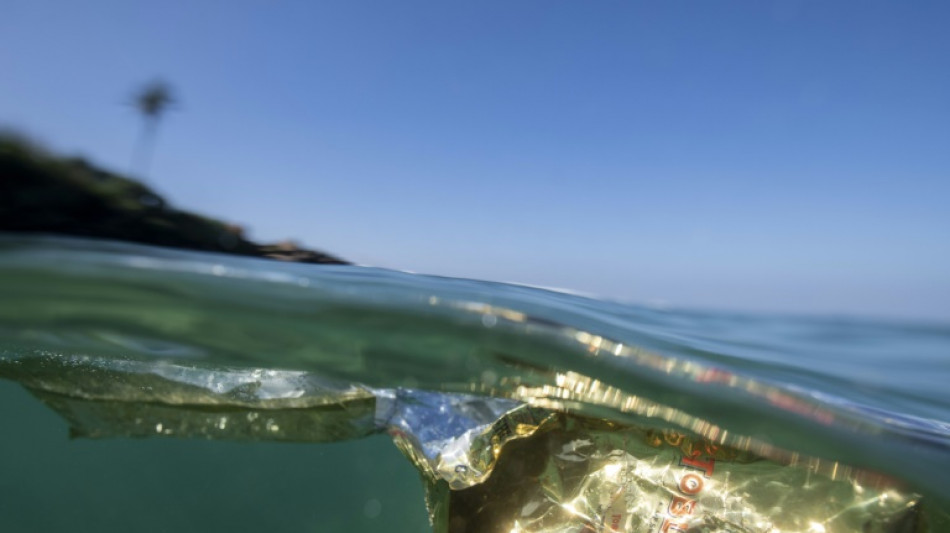
-
 Blanc wins final women's race before Winter Olympics
Blanc wins final women's race before Winter Olympics
-
Elena Rybakina: Kazakhstan's Moscow-born Melbourne champion

-
 Ice-cool Rybakina beats Sabalenka in tense Australian Open final
Ice-cool Rybakina beats Sabalenka in tense Australian Open final
-
Pakistan attacks kill 15, dozens of militants dead: official

-
 Ten security officials, 37 militants killed in SW Pakistan attacks: official
Ten security officials, 37 militants killed in SW Pakistan attacks: official
-
Epstein survivors say abusers 'remain hidden' after latest files release

-
 'Full respect' for Djokovic but Nadal tips Alcaraz for Melbourne title
'Full respect' for Djokovic but Nadal tips Alcaraz for Melbourne title
-
Wollaston goes back-to-back in the Cadel Evans road race

-
 Women in ties return as feminism faces pushback
Women in ties return as feminism faces pushback
-
Ship ahoy! Prague's homeless find safe haven on river boat

-
 Britain's Starmer ends China trip aimed at reset despite Trump warning
Britain's Starmer ends China trip aimed at reset despite Trump warning
-
Carlos Alcaraz: rare tennis talent with shades of Federer

-
 Novak Djokovic: divisive tennis great on brink of history
Novak Djokovic: divisive tennis great on brink of history
-
History beckons for Djokovic and Alcaraz in Australian Open final

-
 Harrison, Skupski win Australian Open men's doubles title
Harrison, Skupski win Australian Open men's doubles title
-
Epstein offered ex-prince Andrew meeting with Russian woman: files

-
 Jokic scores 31 to propel Nuggets over Clippers in injury return
Jokic scores 31 to propel Nuggets over Clippers in injury return
-
Montreal studio rises from dark basement office to 'Stranger Things'

-
 US government shuts down but quick resolution expected
US government shuts down but quick resolution expected
-
Mertens and Zhang win Australian Open women's doubles title

-
 Venezuelan interim president announces mass amnesty push
Venezuelan interim president announces mass amnesty push
-
China factory activity loses steam in January

-
 Melania Trump's atypical, divisive doc opens in theatres
Melania Trump's atypical, divisive doc opens in theatres
-
Bad Bunny set for historic one-two punch at Grammys, Super Bowl

-
 Five things to watch for on Grammys night Sunday
Five things to watch for on Grammys night Sunday
-
Venezuelan interim president proposes mass amnesty law

-
 Rose stretches lead at Torrey Pines as Koepka makes cut
Rose stretches lead at Torrey Pines as Koepka makes cut
-
Online foes Trump, Petro set for White House face-to-face

-
 Seattle Seahawks deny plans for post-Super Bowl sale
Seattle Seahawks deny plans for post-Super Bowl sale
-
US Senate passes deal expected to shorten shutdown

-
 'Misrepresent reality': AI-altered shooting image surfaces in US Senate
'Misrepresent reality': AI-altered shooting image surfaces in US Senate
-
Thousands rally in Minneapolis as immigration anger boils

-
 US judge blocks death penalty for alleged health CEO killer Mangione
US judge blocks death penalty for alleged health CEO killer Mangione
-
Lens win to reclaim top spot in Ligue 1 from PSG

-
 Gold, silver prices tumble as investors soothed by Trump Fed pick
Gold, silver prices tumble as investors soothed by Trump Fed pick
-
Ko, Woad share lead at LPGA season opener

-
 US Senate votes on funding deal - but shutdown still imminent
US Senate votes on funding deal - but shutdown still imminent
-
US charges prominent journalist after Minneapolis protest coverage

-
 Trump expects Iran to seek deal to avoid US strikes
Trump expects Iran to seek deal to avoid US strikes
-
Guterres warns UN risks 'imminent financial collapse'

-
 NASA delays Moon mission over frigid weather
NASA delays Moon mission over frigid weather
-
First competitors settle into Milan's Olympic village

-
 Fela Kuti: first African to get Grammys Lifetime Achievement Award
Fela Kuti: first African to get Grammys Lifetime Achievement Award
-
'Schitt's Creek' star Catherine O'Hara dead at 71

-
 Curran hat-trick seals 11 run DLS win for England over Sri Lanka
Curran hat-trick seals 11 run DLS win for England over Sri Lanka
-
Cubans queue for fuel as Trump issues energy ultimatum

-
 France rescues over 6,000 UK-bound Channel migrants in 2025
France rescues over 6,000 UK-bound Channel migrants in 2025
-
Surprise appointment Riera named Frankfurt coach

-
 Maersk to take over Panama Canal port operations from HK firm
Maersk to take over Panama Canal port operations from HK firm
-
US arrests prominent journalist after Minneapolis protest coverage


Rise in ocean plastic pollution 'unprecedented' since 2005
Plastic pollution in the world's oceans has reached "unprecedented levels" over the past 15 years, a new study has found, calling for a legally binding international treaty to stop the harmful waste.
Ocean plastic pollution is a persistent problem around the globe -- animals may become entangled in larger pieces of plastic like fishing nets, or ingest microplastics that eventually enter the food chain to be consumed by humans.
Research published on Wednesday found that there are an estimated 170 trillion pieces of plastic, mainly microplastics, on the surface of the world's oceans today, much of it discarded since 2005.
"Plastic pollution in the world's oceans during the past 15 years has reached unprecedented levels," said the study, published in open-access journal PLOS One.
The amounts were higher than previous estimates, and the study found that the rate of plastic entering the oceans could accelerate several-fold in the coming decades if left unchecked.
Researchers took plastic samples from over 11,000 stations around the world focusing on a 40-year period between 1979 and 2019.
They found no trends until 1990, then a fluctuation in trends between 1990 and 2005. After that, the samples skyrocket.
"We see a really rapid increase since 2005 because there is a rapid increase in production and also a limited number of policies that are controlling the release of plastic into the ocean," contributing author Lisa Erdle told AFP.
The sources of plastic pollution in the ocean are numerous.
Fishing gear like nets and buoys often end up in the middle of the ocean, dumped or dropped by accident, while things like clothing, car tyres and single-use plastics often pollute nearer to the coast.
They eventually break down into microplastics, which Erdle said can look like "confetti on the surface of the ocean".
- 'Flood of toxic products' -
On current trends, plastic use will nearly double from 2019 across G20 countries by 2050, reaching 451 million tonnes each year, according to the report, jointly produced by Economist Impact and The Nippon Foundation.
In 1950, only two million tonnes of plastic were produced worldwide.
Recycling, even in countries with advanced waste management systems, has done little to help the pollution problem since just a small percentage of plastics are properly recycled and much often ending up in landfills instead.
If landfills are not properly managed, plastic waste can leech into the environment, eventually making its way to oceans.
"We really we see a lack of recycling, a flood of toxic products and packaging," Erdle said.
The rates of plastic waste were seen to recede at some points between 1990 and 2005, in part because there were some effective policies in place to control pollution.
That includes the 1988 MARPOL treaty, a legally binding agreement among 154 countries to end the discharge of plastics from naval, fishing and shipping fleets.
But with so much more plastic being produced today, the study's authors said a new, wide-ranging treaty is needed to not only reduce plastic production and use but also better manage its disposal.
"Environmental recovery of plastic has limited merit, so solution strategies must address those systems that restrict emissions of plastic pollution in the first place," the study said.
Last year, 175 nations agreed to end plastic pollution under a legally binding United Nations agreement that could be finalised as soon as next year.
Among the key actions under negotiation are a global ban on single-use plastics, a "polluter pays" scheme, and a tax on new plastic production.
The total weight of the plastic pollution detected in the ocean today is estimated at 2.3 million tonnes, the PLOS study said.
It examined samples in the North Atlantic, the South Atlantic, the North Pacific, the South Pacific, the Indian and Mediterranean oceans.
O.Bulka--BTB



